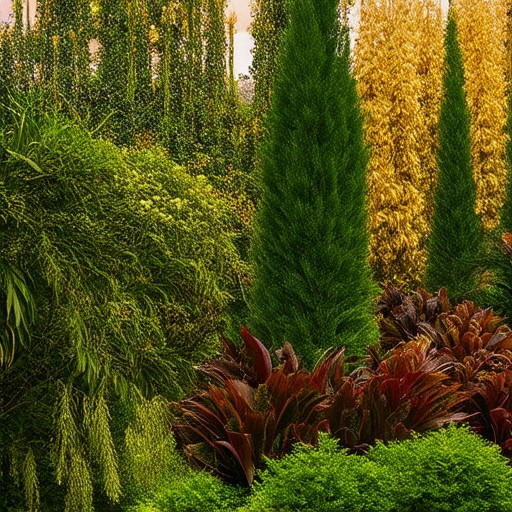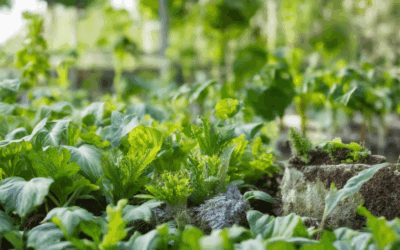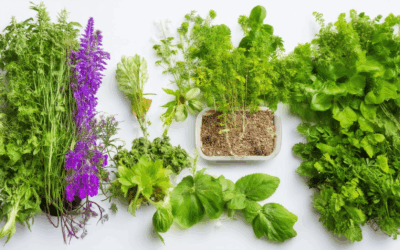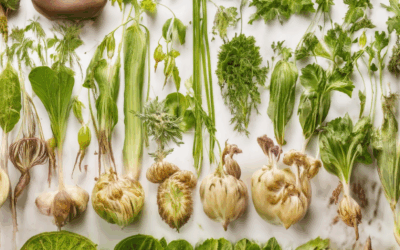Eco-friendly heirloom gardening is more than just a trend; it’s a sustainable practice that resonates with gardeners who value tradition, health, and the environment. As interest in sustainable living grows, many are turning to heirloom seeds to cultivate their gardens in ways that honor nature and history. While hybrid seeds offer convenience and uniformity, heirloom varieties provide unique flavors, resilience, and a connection to timeless agricultural methods. But is heirloom truly superior, or do hybrids have their place? This article delves into the pros and cons of both, exploring why heirloom seeds are gaining popularity and how they compare to organic options. We’ll also discuss the challenges of growing heirloom vegetables, including the most resilient plants to consider, and where to find resources like the USDA free seeds website and companies that offer free heirloom seed collections. Whether you’re new to eco-friendly gardening or looking to expand your skills, this guide will help you navigate the world of heirloom seeds and sustainable practices.
Key Takeaways
– Heirloom Gardening is Easier Than You Think: Contrary to popular belief, heirloom vegetables are actually quite manageable to grow, offering diverse options suited to various climates.
– Diverse Varieties for Every Garden: Heirloom plants cater to different growing conditions, making them a flexible choice for eco-conscious gardeners.
– Sustainability Meets Flavor: Open-pollinated heirlooms are a sustainable choice, preserving flavor and biodiversity for future generations.
– Challenges Are Manageable: While heirlooms may face some challenges like disease susceptibility, these can be addressed with proper care and sustainable practices.
– Research for Success: Choosing the right heirloom varieties is key, ensuring they align with your specific climate and gardening skills.
– Sustainable Practices Boost Yields: Implementing techniques like crop rotation and organic methods enhances soil health and reduces pest issues.
– Resilient Vegetables for Eco-Friendly Gardens: Cucumbers, tomatoes, peppers, and others thrive in various conditions, making them ideal for sustainable farming.
– Explore Quality Seeds: Consider reputable sources like Old Seed for high-quality heirloom and organic seeds to enhance your garden’s success.
Hybrid vs. Heirloom Seeds
When deciding between hybrid and heirloom seeds, it’s essential to consider your specific needs and preferences. Here’s a breakdown of the differences:
- Hybrid Seeds: – Pros: Uniform growth, high yield potential, and resistance to diseases make hybrids ideal for large-scale farming and consistent crops. – Cons: They may lack in flavor complexity compared to heirlooms and are less diverse in terms of variety.
- Heirloom Seeds: – Pros: Heirlooms are known for their rich flavors, unique textures, and diverse traits. They are often open-pollinated, allowing for natural reproduction. – Cons: They require more attention and may have lower yields due to their less uniform growth patterns.
Ultimately, the choice between hybrid and heirloom seeds depends on your priorities. Hybrids offer stability and efficiency, while heirlooms provide a more adventurous and flavorful experience. Both have their place in modern agriculture and backyard gardens!
Disadvantages of Heirloom Seeds
While heirloom seeds offer many benefits, they also come with certain drawbacks that gardeners and farmers should be aware of:
- Variable Germination Rates: Heirloom seeds may have inconsistent germination rates due to their genetic diversity. This can lead to uneven growth and reduced crop yields compared to hybrid varieties.
- Genetic Instability: Over time, heirloom seeds can develop genetic mutations, which might result in plants that are less uniform in size, shape, and yield. This can make them less predictable compared to hybrid seeds.
- Susceptibility to Pests and Diseases: Since heirloom seeds are often open-pollinated and not genetically modified, they can be more vulnerable to pests and diseases. This requires more attention and care to maintain healthy plants.
- Higher Labor Intensity: Growing heirloom seeds often means more manual intervention, such as pollinating by hand or trellising plants. This can increase the labor required compared to hybrid or GMO crops.
- Limited Resistance to Stressors: Heirloom plants may not have the same level of resistance to stressors like drought, heat, or cold as hybrid varieties, making them less adaptable in certain growing conditions.
- Reduced Availability of Varieties: While there are thousands of heirloom varieties available, finding specific types can be challenging. This limited availability can restrict planting options for some growers.
- Requires Special Storage Conditions: Heirloom seeds typically require cooler temperatures during storage to remain viable. This can be a challenge for large-scale operations or regions with limited storage capabilities.
- Environmental Impact Concerns: Some heirloom seeds may have been treated with chemicals or synthetic fertilizers during production, which can affect their organic status. This is something to consider if you’re aiming for an organic garden.
Despite these challenges, heirloom seeds remain popular among gardeners who value genetic diversity, historical significance, and unique flavors. By understanding these disadvantages, you can make informed decisions about which seeds to choose for your specific needs.
Are Heirloom Seeds Better Than Organic Seeds?
Heirloom seeds and organic seeds each have unique characteristics, benefits, and considerations. The choice between them depends on your priorities, such as taste, sustainability, and ease of cultivation.
Key Differences:
- Production Method :
- Heirloom Seeds : Typically produced through open-pollination, relying on natural pollinators. This method emphasizes genetic diversity and traditional practices.
- Organic Seeds : Grown using organic farming methods without synthetic chemicals, focusing on natural processes and biodiversity.
- Flavor and Nutrition :
- Heirloom seeds are often noted for their superior flavor due to their diverse genetics. However, their nutrient profile may vary widely between varieties.
- Organic seeds generally offer consistent quality and may be more nutritious due to the absence of synthetic chemicals, though their flavor can sometimes be less intense.
- Disease Resistance and Yield :
- Heirloom seeds may lack the genetic resilience of hybrid varieties, potentially requiring more attention and varying yields.
- Organic seeds often exhibit better disease resistance and consistent yields, making them easier to grow for many farmers.
- Sustainability :
- Both heirloom and organic seeds support sustainability by promoting biodiversity and reducing chemical use. Heirloom seeds contribute to genetic diversity, while organic farming aligns with ecological health.
Considerations for Choosing:
- Taste Preference : Opt for heirloom seeds if you prioritize flavor.
- Health and Environment : Choose organic seeds for potential nutritional benefits and reduced chemical exposure.
- Growing Conditions : Consider heirloom seeds if you live in a region suited for their cultivation and can manage variable yields.
Conclusion:
Both heirloom and organic seeds offer valuable benefits. The best choice depends on your specific needs, whether it’s for culinary enjoyment, environmental impact, or reliable crop production. Exploring options from reputable sources like Old Seed can help you find the perfect fit for your gardening goals.
Are Heirloom Vegetables Harder to Grow?
Heirloom vegetables are often celebrated for their rich history and unique traits, but they are not inherently harder to grow compared to hybrid varieties.
Why Heirloom Vegetables Are Easier to Grow
- Diverse Varieties: Heirloom plants come in a wide range of types, allowing gardeners to choose varieties suited to their climate and growing conditions.
- Open-Pollinated: Unlike hybrid seeds, heirloom seeds can be saved and replanted year after year, making them a sustainable option for many gardeners.
- Natural Resistance: While they may lack some genetic modifications found in hybrid crops, heirlooms have developed resilience through centuries of cultivation.
Challenges of Growing Heirloom Vegetables
- Adaptation: Some heirloom varieties may require more attention to local conditions, such as soil type and weather patterns.
- Disease Susceptibility: They can be more vulnerable to pests and diseases due to their non-hybrid nature.
- Care Requirements: Proper watering, fertilization, and support may be needed to ensure successful growth.
Tips for Successful Heirloom Gardening
- Research Varieties: Choose heirloom plants suited to your growing zone and climate.
- Practice Sustainable Practices: Rotate crops and use organic methods to maintain soil health and reduce pest issues.
- Seek Resources: Utilize trusted gardening resources like Old Seed for tips and guides tailored to heirloom gardening.
With proper care and understanding, heirloom vegetables can be just as rewarding to grow as they are to eat. Their unique flavors and historical significance make them a valuable addition to any garden.
Disadvantages of Heirloom Tomatoes
- Heirloom tomatoes can be more challenging to grow due to their susceptibility to diseases and pests compared to hybrid varieties.
- They often require more attention and care, including regular monitoring for diseases like blight and rot, which can reduce yields.
- Heirloom tomatoes may not always be as productive as hybrid varieties, particularly in regions with cooler climates or shorter growing seasons.
- The fruits can sometimes be more prone to splitting or cracking during ripening, which can lead to waste if not properly managed.
- While they are highly regarded for their flavor, heirloom tomatoes can vary significantly in size, shape, and texture, which might not appeal to everyone’s preferences.
- Some heirloom varieties may not be as readily available in local markets, requiring gardeners to grow them specifically or source them from specialty farms.
The Most Resilient Vegetable to Grow
When it comes to gardening, selecting the right crops can make all the difference, especially in challenging conditions. Here’s a list of some of the most resilient vegetables that thrive under various growing conditions:
- Cucumber : Known for its high water content, cucumbers are excellent for hot, dry climates. They require minimal watering once established and can be grown on trellises or fences.
- Tomato : Tomatoes are heat-tolerant and can handle drought conditions once they’re mature. They’re a staple in many gardens due to their adaptability.
- Pepper : Peppers love the sun and heat. From sweet bell peppers to spicy chili peppers, they’re a versatile crop that thrives in warm weather.
- Eggplant : Eggplants are drought-resistant and thrive in hot, arid environments. They’re perfect for regions with limited rainfall.
- Zucchini : Zucchini plants are known for their hardiness. They can withstand heat and drought once they’ve grown a bit, producing abundant fruits.
- Squash : Squash varieties like zucchini and spaghetti squash are highly resistant to pests and diseases, making them ideal for sustainable gardens.
- Sweet Potato : Sweet potatoes are drought-tolerant and can survive in poor soil conditions. They’re a nutritious addition to any garden.
- Carrot : Carrots are relatively drought-tolerant once established. They prefer well-drained soil and don’t require frequent watering.
- Beet : Beets are resilient to heat and drought. They’re easy to grow and can be harvested continuously throughout the season.
- Spinach : Spinach is surprisingly drought-tolerant and can grow well in hot climates. It’s a cool-season crop that adapts to various conditions.
If you’re looking for high-quality seeds to get started, consider Old Seed . We specialize in heirloom and organic seeds, ensuring your garden thrives year after year.
Competitors like Burpee Seeds and Heirloom Organics also offer excellent options for heat- and drought-tolerant crops. Their seed collections are worth exploring if you’re looking for variety and reliability.
Remember, the key to growing resilient vegetables is proper planning and preparation. Choose varieties suited to your climate and ensure your soil is healthy before planting. With the right care, your garden will reward you with bountiful harvests despite any challenges.








0 Comments